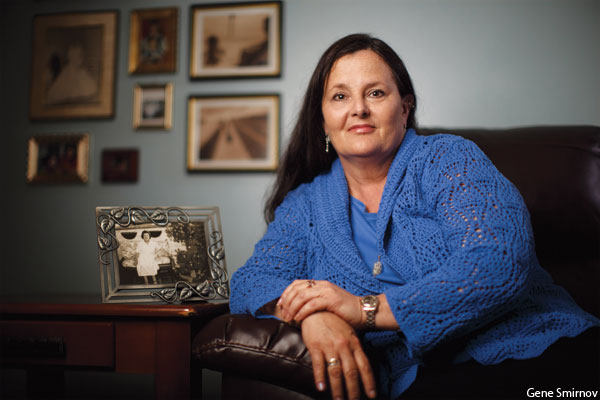The Woman Who Exposed Ireland’s Magdalene Laundries
Mari Steed’s fingers trembled as she tapped commands on her laptop.
The unprecedented apology was about to be streamed online, projected onto a big screen in the conference room of the Philadelphia World Affairs Council. As the group’s director of technology and new media, Steed had set up numerous live feeds before. But her hands had never shaken.
Today was personal. Irish Prime Minister Enda Kenny was going to use a session of Parliament to issue an apology, acknowledging what Mari Steed had known for years: that for nearly a century, the Irish government had participated in the imprisonment and abuse of thousands of women whose only crime was that they’d been orphaned, or abandoned by their families, or gotten pregnant outside of marriage. They were known as the Magdalenes. And Mari’s birth mother had been one of them.
The government had long touted a party line about the Magdalenes: They had voluntarily entered the institutions where they’d been treated like slaves, had willingly relinquished their children. But now, the Irish government could no longer deny the disgrace it had abetted.
And so today, Ireland’s prime minister would officially apologize to the surviving women—all of them elderly. And Mari would begin to make peace with the country that had betrayed the child she had been and the mother who had borne her. The conference-room screen flickered to life. Mari leaned in to watch, her co-workers gripping her hands in support.
“What we discuss today is your story,” Kenny said in the televised session that practically all of Ireland was watching. “What we address today is how you took this country’s terrible ‘secret’ and made it your own. Burying it, carrying it in your hearts here at home, or with you to England and to Canada, America and Australia, on behalf of Ireland and the Irish people. But from this moment on, you need carry it no more. Because today, we take it back.”



